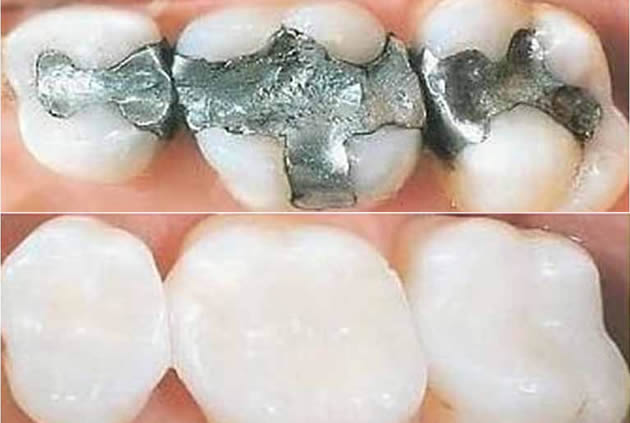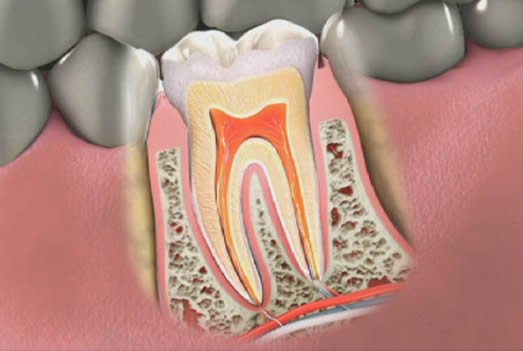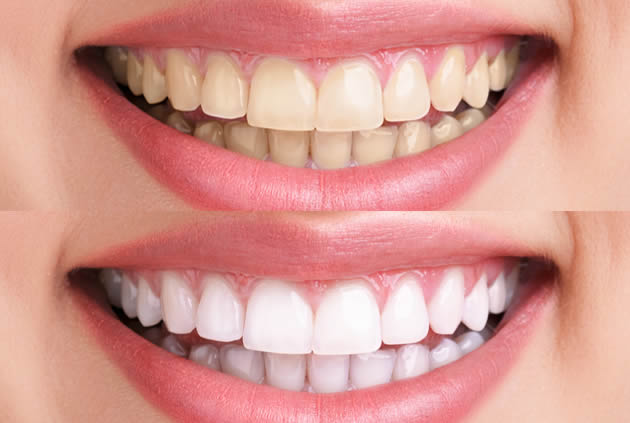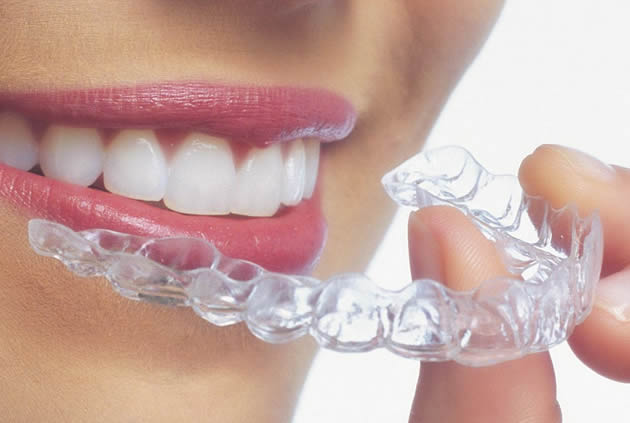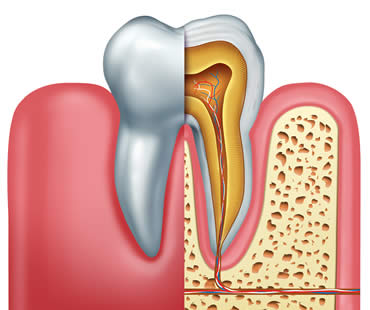
A toothache can make your life miserable. It may involve terrible tooth pain as well as headaches, sleeplessness, and difficulty eating. A trip to the dentist’s office is a must if you want relief. An examination might reveal that you need root canal treatment to save your tooth and eliminate your symptoms.
Severe tooth decay, a faulty crown, repeated tooth procedures or trauma are common causes of tooth damage. These issues can also lead to infection of your tooth’s pulp, which is on the inside of your tooth. Also called endodontic therapy, root canal treatment focuses on getting rid of the damaged tooth pulp. If infection is present, it is also removed. The root canal is thoroughly cleaned and disinfected, and then the area is filled with a special material called gutta-percha. Finally, the tooth is typically restored with a dental crown to provide maximum protection from future damage.
Some of the benefits you can expect from root canal treatment include chewing with normal biting force and sensation, maintaining natural tooth appearance, protecting other teeth from excessive wear, and avoiding a troublesome gap in the smile. In as little as one or two appointments, these benefits can be achieved without a great deal of discomfort. Innovations in technology have made the experience of root canal treatment usually no more painful or difficult than simply getting a dental filling. Once root canal treatment is complete, the tooth can last a lifetime with regular checkups and proper oral hygiene.
We treat patients from Baltimore and the surrounding area

A toothache can ruin your life, at least until you have treatment that relieves the pain. Headaches, mouth pain, or inability to chew can all accompany a tooth problem. It is not unusual for tooth pain to be linked to tooth decay, and when it becomes advanced you just can’t ignore it. This is when root canal therapy is valuable.
What is the procedure?:
Root canal treatment focuses on the pulp cavity, which is the inside of the tooth. When the pulp is infected or inflamed, it needs to be completely removed from the tooth in order for it to heal. It doesn’t matter if the damage to the pulp results from severe decay, tooth fracture, faulty crown, repeated dental procedures, or trauma. Even if the damage isn’t visible or causing unbearable pain, the bottom line is that the interior of the tooth must be cleaned out, disinfected and sealed to prevent future infection. A crown is typically placed on top of the tooth to protect it and complete the procedure.
Why is it necessary?:
If left untreated, an infected pulp can lead to intense pain or spread to other parts of the body. Root canal treatment is the best way to save the tooth and restore its function. Other benefits of the procedure are maintaining the tooth’s natural look, protecting other teeth from excessive wear, restoring normal chewing ability, and allowing normal sensation and biting force.
How long does it take?:
The procedure is more routine than you might think. An experienced dental professional can complete the process is one or two appointments, depending on your specific case. Once the procedure is complete, your repaired tooth should last as long as the rest of your teeth.
We look forward to seeing you in our Baltimore dental office

If you suspect you have an infected tooth, you might wonder if root canal treatment might be in your future. Do you have another option? Yes! One such alternative has been in existence for decades, but has only recently come to be more effective due to advancements in materials. This process is called pulp capping.
Pulp capping can help patients whose root infections have not yet reached the tooth’s nerve. Root infections begin when bacteria enters the pulp of the tooth through a crack or a large cavity. In a standard root canal procedure, the pulp and nerve of the tooth is hollowed out, cleaned and sealed, typically with a crown restoration.
With pulp capping, the nerve is preserved and the tooth is often repaired with a filling instead of a crown. Pulp capping allows the dentist to clean and protect the pulp, defending it from infection with medicine. With a successful pulp cap, the dentin of the tooth begins to regrow over the pulp cap. Advancements in the sealants used during these types of procedures has allowed for a greater percentage of success.
If you have a toothache, it’s important to see your dentist immediately. Pulp capping has a narrow window in which it can be performed. If your tooth is too infected, the pulp and nerve of your tooth may already be infected, and it’s too late for pulp capping to be effective.
A pulp cap is a far less invasive procedure than a root canal treatment or a tooth extraction, and there is less recovery time and tooth sensitivity following the treatment.
If you suspect you may have a tooth in trouble, talk to your dentist now. You might be able to save yourself a root canal treatment.
Our dental office is located in Baltimore

General dentistry offers exactly what the name implies: dental care related to the general maintenance of good oral health. The ideal way to look at dentistry is preventative, which means focusing on good oral hygiene and functionality before problems can take hold. Finding a qualified and skilled general dentist who you visit every six months for checkups is the best way to prevent serious dental issues and help you maintain excellent oral health.
A trip to the general dentist for you or any of your family members, no matter their age, is a smart way to keep your smile looking and feeling great. Your general dentist will help create the perfect dental plan that depends on your personal oral health and needs. A typical dental visit includes thorough examination, X-rays or other diagnostic tests, professional teeth cleaning, and any treatments that might be needed for your condition. If a certain treatment isn’t available through your general dentist, it’s likely that you’ll receive a referral to a reputable specialist to complete the work.
Every dentist is unique, so you’ll need to inquire about the specific treatments available at your dentist’s practice. Some common services that many general dentists provide include:
- Dental sealants
- Fluoride treatments
- Professional cleanings
- Gum scaling or recontouring
- Fillings
- Bonding
- Root canal therapy
- Crowns and bridges
- Dental implants
- Dentures
- Veneers
- Orthodontics
In addition to dental treatments, your general dentist will evaluate your at-home hygiene routine and make suggestions for improvement. You will learn proper brushing and flossing techniques, as well as learn about any additional products or practices that might improve your oral health. Your general dentist wants you and your family to have the best smiles and oral health possible, and will help you achieve that goal.
If you need a dentist in Baltimore contact us today
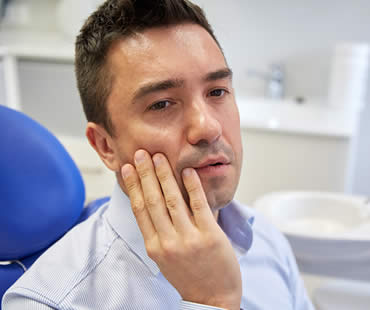
If you are about to undergo root canal treatment to save a compromised tooth, your oral surgeon or dentist will likely provide you with a list of aftercare instructions. It is vitally important that you follow these recommendations to avoid complications and ensure the success of your endodontic treatment.
There are a few tips you can follow to speed up your recovery time, promote healing, and prevent serious dental problems and infections following root canal treatment:
- Do not chew on the treated side of your mouth until all of the numbness from the anesthetic has worn off completely.
- To manage swelling, apply an ice pack or bag of frozen peas on the treated area for thirty minutes. Repeat once an hour for about fifteen minutes each time until swelling subsides.
- For several nights after treatment, keep your head elevated while sleeping.
- Gently rinse your mouth with warm salt water regularly for the first few days after root canal treatment.
- Refrain from smoking for a minimum of 24 hours and try to curb tobacco usage as much as possible during the healing period.
- Avoid strenuous physical activity or exercise for 48 hours after your root canal procedure.
Contact your dentist immediately if you experience any excessive swelling or pain, the appearance of a rash or hives, or a return of original symptoms. By listening to the recommendations of your dentist, and following these extra tips, you can assure yourself the best chance of a rapid and complication-free recovery from root canal treatment.
If you live in the Baltimore area contact us today

What is a dental bridge?
- Dental bridges make a bridge between two anchor teeth and are meant to fill a space left by a missing tooth. Teeth can be missing due to trauma, decay or some type of natural loss. Dental crowns cap the anchor teeth, giving the bridge stability and giving the replacement tooth the strength to function as a natural tooth.
What is a dental crown?
- Dental crowns are a restorative treatment meant to protect a tooth that has gone bad due to cracking, acute decay, or has received root canal therapy. A crown is crafted to fit in your mouth and to function exactly as your natural tooth would. They work by covering the damaged tooth entirely and can change the shape or alignment of the prior natural tooth.
Isn’t a dental crown the same thing as a dental cap?
- A dental cap and a dental crown are two different terms for the same thing.
What are dental crowns made of?
- Dental crowns can be made of 100% ceramic (porcelain), porcelain-fused-to-metal, or gold or other metal alloy, including zirconia. Metal alloy dental crowns are typically stronger and more suited for back teeth.
Do dental crowns look natural?
- Crowns made from porcelain or ceramic can be very natural looking. Many materials have excellent translucency, and mimic your natural teeth very well.
Is a dental bridge an option for me?
- Are you missing a tooth? Are your adjacent teeth healthy and stable? If so, dental bridge treatment may be right for you.
Are there options available to me other than dental bridges to replace missing teeth?
- The best alternative option to replace a missing tooth is a dental implant. Dental implants can restore one or more teeth by being placed directly into the jawbone, fusing securely over time.
If you’re considering moving forward to replace your missing tooth or teeth, discuss options with your cosmetic dentist. Get the answers you need to determine if dental crowns or dental bridges can help you reach your smile goals.
Schedule your appointment at our Baltimore dental office













